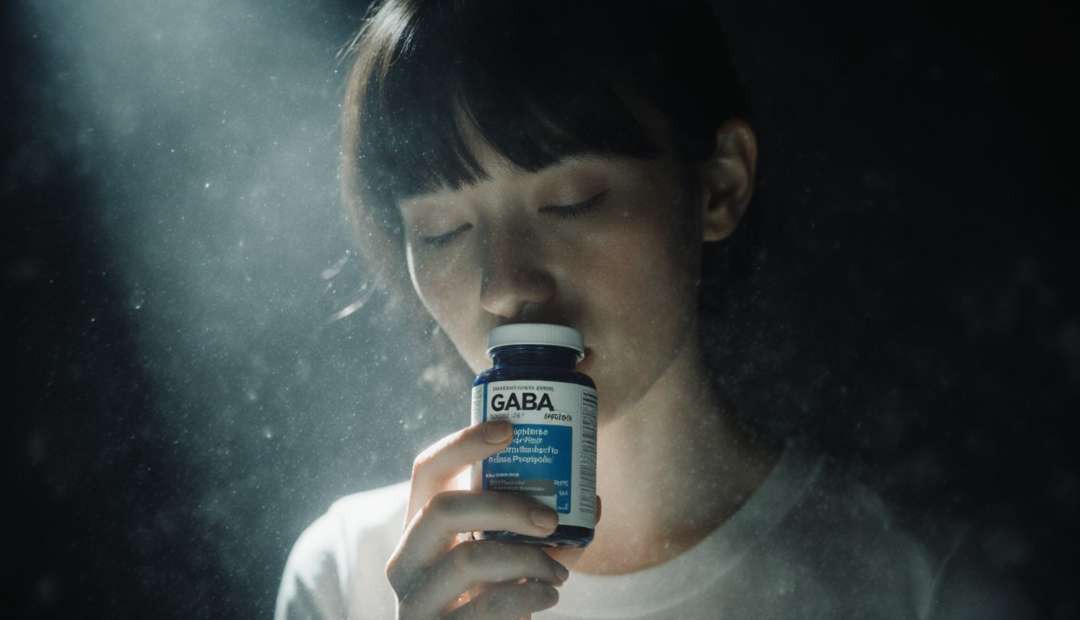It’s 11 pm. The kids are finally asleep, dishes are stacked in the sink, and your mind is racing through tomorrow’s to-do list. If you’re a parent anywhere in the world balancing family life and work pressures, this scene may feel all too familiar. Anxiety, restlessness, and poor sleep are becoming common companions for adults in their 30s and 40s.
In search of relief, many are turning to supplements. One name you may have seen in health forums is GABA—short for gamma-aminobutyric acid. Another, gaining traction in recent years, is lithium orotate GABA, promoted as a natural mood stabilizer. But do they really work? And more importantly, are they safe for everyday use by busy parents?
Let’s take a closer look, through science, local context, and real-life parenting needs.
What is GABA and Why Does it Matter?
GABA: The brain’s calming messenger
GABA is a neurotransmitter—the brain’s chemical signal for calmness. While dopamine excites and motivates, and serotonin helps regulate mood, GABA slows down excessive activity. Without enough GABA, the brain feels like a car with a broken brake system—thoughts race, worry increases, and sleep becomes elusive.
Low GABA and anxiety symptoms
Signs of reduced GABA activity can include:
-
Difficulty falling asleep.
-
Racing thoughts or restlessness.
-
Feeling overwhelmed in stressful situations.
GABA Supplements for Anxiety – The Science
Do oral GABA supplements reach the brain?
Here’s the challenge: scientists debate whether oral GABA crosses the blood–brain barrier effectively. Some studies suggest minimal penetration, while others show measurable calming effects.
Clinical evidence: mixed results
-
A small Japanese study found that GABA-enriched drinks reduced stress markers.
-
Other trials report improvements in relaxation, but not always beyond placebo.
-
The consensus: GABA supplements may help indirectly, perhaps through the gut–brain axis.
Lithium Orotate and GABA – What’s the Connection?
Lithium carbonate vs. lithium orotate
Lithium carbonate is a prescription medication long used for bipolar disorder. Lithium orotate, however, is a lower-dose, over-the-counter form marketed as a supplement. Advocates claim it offers neuroprotective benefits without the strong side effects of medical lithium.
How lithium influences GABA
Lithium may enhance GABA activity, supporting the brain’s ability to calm itself. This is why some people explore lithium orotate GABA supplements together, hoping for synergistic relief.
Safety considerations in Hungary
Unlike in the U.S., lithium orotate is less common in Hungarian pharmacies. It can sometimes be found through international online shops, but local integrative clinics recommend medical supervision due to potential kidney and thyroid effects.
Natural Ways to Boost GABA Beyond Supplements
Before investing in pills, remember: your body can boost GABA naturally through lifestyle choices.
1. Nutrition matters
-
Magnesium – found in pumpkin seeds and dark chocolate.
-
Fermented foods – like sauerkraut (savanyú káposzta) that Hungarians love.
-
Green tea (L-theanine) – supports calm alertness.
2. Movement and exercise
Yoga, moderate cardio, and even family cycling around Lake Balaton enhance natural GABA levels.
3. Mindfulness and prayer
Cultural practices matter. Many Hungarian parents find daily prayer or mindfulness exercises helpful in reducing stress.
4. Sleep hygiene
Herbal teas like kamillatea (chamomile tea), dimmed lights, and avoiding screens before bed all encourage better GABA balance.
Risks and Considerations
Side effects and safety
-
GABA: generally safe, but high doses may cause digestive discomfort or drowsiness.
-
Lithium orotate: can strain kidneys and thyroid at higher doses.
Interactions
Both may interact with medications for depression, epilepsy, or blood pressure.
Conclusion
Anxiety is not a weakness—it’s a signal from your body asking for balance. For parents in Hungary, finding calm is not just about personal relief—it’s about showing up with patience and presence for your children.
Lithium orotate GABA supplements may offer some support, but they are not magic bullets. The foundation lies in nutrition, sleep, stress management, and community. Think of supplements as tools in a larger toolkit—not the whole solution.
Start small: add a magnesium-rich snack today, or brew chamomile tea tonight. With every step, you’re not just easing anxiety—you’re building a calmer, more resilient future for your family.
FAQs
1. What is GABA and how does it reduce anxiety?
GABA is the brain’s calming neurotransmitter. It slows overactive nerve signals, reducing tension and restlessness.
2. Do GABA supplements actually work?
Research is mixed. Some people feel calmer, while others notice little change. Effects may be indirect through the gut–brain connection.
3. Is lithium orotate available in Hungary?
It’s not widely sold in pharmacies but can be ordered online. Always consult a doctor before use.
4. Can I take lithium orotate GABA together safely?
Some combine them, but safety depends on dosage and health status. Professional guidance is essential.
5. What natural foods increase GABA levels?
Pumpkin seeds, lentils, fermented foods, and green tea all support GABA naturally.
6. Should I see a doctor before starting supplements?
Yes. Especially if you take medications or have kidney/thyroid conditions.
Photo:AI


